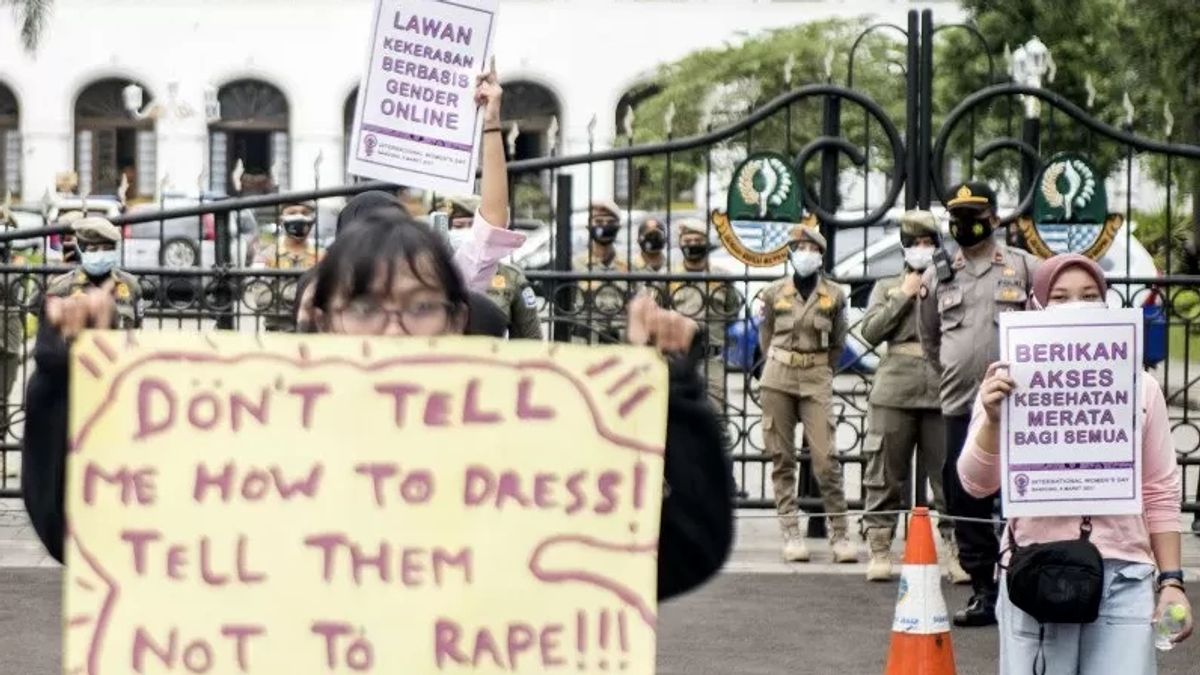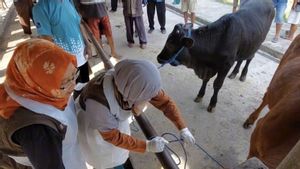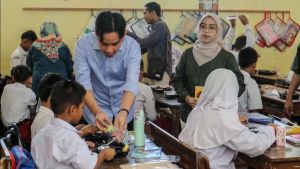JAKARTA - The National Research and Innovation Agency (BRIN) stated that there is still some homework to be done by the House of Representatives (DPR) after ratifying the Draft Law on the Crime of Sexual Violence (RUU TPKS).
BRIN Political Research Center researcher, Aisah Putri Budiatri, asked the DPR to immediately complete several legislative programs from a gender perspective.
"I hope that in the context of the TPKS Law, the DPR will be led by women, and the Ministry of KPPA will be active and synergize with elements of civil society. This is a momentum to also hasten new policies with a gender perspective", said Aisah in her written statement, Wednesday, April 20.
The new legislation with a gender perspective that Aisah is referring to is the Draft Law (RUU) for the Protection of Domestic Workers and the Bill on Justice and Gender Equality.
The TPKS Bill, which was approved by the DPR to be passed into law, is a collective work between the Government, the DPR, and civil society groups. In addition, the involvement of women's activists and observer institutions has a big role in preparing the drafting of the bill.
"This is a good momentum that the DPR and the Government can synergize with civil society for good things, for the public", she continued, quoted from Antara.
Regarding the role of women activists in organizing political democratic parties, Aisah admitted that she had conducted research during the 2004 General Election.
She said that in the 2004-2009 period many women activists then collaborated with civil society groups to attract their political will. Although the share of female members is relatively small in the government structure, they gather other powers, she said.
"At that time the number was small, but at that time women activists collaborated with civil society and women's groups. The idea was where the important issues were and what to do. So they really had political intentions, political will", she said.
SEE ALSO:
Meanwhile, the co-founder of the Hang Lekir Center for Strategic Studies, Maria Hamid, said that the influence of Puan Maharani as the first woman to occupy the chair of the DPR had a significant effect in determining gender-based policies, especially the TPKS Bill which had stalled.
"A woman is sitting as a policymaker, she marries the issue of freedom and women, women's issues and justice, making it discussed in the public sphere. It shows that women have bargaining power", said Maria.
With the TPKS Bill, she continued, taboo matters related to problems in the household can be broken down to become a public discussion. He considered that so far, domestic violence, including sexual violence, was kept tightly because it was considered a disgrace.
"Opening taboo barriers to be discussed openly and consensually. This law makes the private sphere public. This is a good thing because even if social norms change, there is already legislation", she said.
The English, Chinese, Japanese, Arabic, and French versions are automatically generated by the AI. So there may still be inaccuracies in translating, please always see Indonesian as our main language. (system supported by DigitalSiber.id)

















